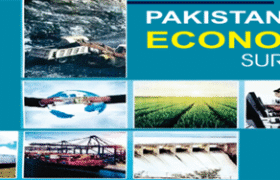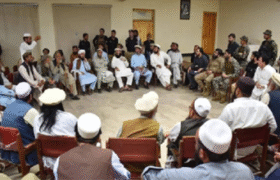Shahzad Masood Rumi
In October 2023, Pakistan announced a significant policy shift regarding the repatriation of undocumented Afghan nationals residing within its borders. This decision was driven by a confluence of security, economic, and political factors. The policy has been the target of some internal and external forces, mainly for political gains through popular narrative support.
Understanding the genesis of this policy is significant as it will help understand the local and regional dynamics behind the policy. It is a known fact that Pakistan has long been a sanctuary for 3.8~4.2 million Afghan refugees (figures estimated in a 2023 report). The primary reasons for initiating the repatriation drive, according to the Pakistani authorities, are increasing crime rates, economic burdens, and national security threats. The policy mandates that all undocumented Afghans and those with expired visas or lacking proper documentation must return to Afghanistan. Terrorism played a key role in ushering in a lasting shift in Pakistan’s policy towards Afghan citizens who have been living here for decades without any problems. Fitna-al-Khawarij and other terror outfits were using these people as a smoke screen to carry out logistical and field operations in which exchange of terrorists, ammunition, and intelligence was being carried out.
Since policy’s inception, over 800,000 Afghans have reportedly returned to Afghanistan, either voluntarily or under the deportation process. The government has set deadlines for different categories of Afghan residents, with those holding Afghan Citizen Cards (ACC) given until March 31, 2025, to leave the country.
Rationale behind the policy is evident, yet there is an unfortunate aspect of this entire exercise, and that is the undue criticism and political propaganda against it. The propaganda is in contrast to the ground realities and is void of any logic. However, it serves the interests of some political and sub-nationalist forces. Leadership of Pushtun nationalist parties, including Awami National Party (ANP) and Pakhtunkhwa Milli Awami Party, while strongly opposing the policy, argued that it violates international conventions and Pakistan’s legal precedents. They argue in favour of deep-rooted cultural and familial ties between Pashtuns on both sides of the Durand Line, cautioning that forced repatriations could exacerbate tensions and tarnish Pakistan’s international image.
This narrative is factually flawed and is devoid of any factual reality. Pakistan hosted these refugees for decades and allowed them to flourish in Pakistan with equal rights. No country in the world has done this anywhere in the world. Apart from that, this is not forced repatriation as is being claimed. A clear framework and timeline were given to the Afghan citizens in Pakistan to leave the country, and hundreds of thousands have already been repatriated peacefully and voluntarily. By sending these stranded Afghans back to their homeland, Pakistan is actually helping them to reunite with their families and tribes in Afghanistan.
Similarly, leaders of Pakistan Tehreek-e-Insaf (PTI), including former National Assembly Speaker Asad Qaiser, have expressed “concerns” over the humanitarian implications of the policy. The narrative PTI is pushing argues that many Afghans in Pakistan are victims of war and persecution, and that forced deportations could further destabilize the region. Again, this must be understood that Pakistan’s security is paramount for Pakistani government and national security institutions. The policy is a well-thought-out process, and after concrete evidences of TTP/ BLA using Afghan refugees as a smoke screen to infiltrate Pakistan were found. Pakistan never shied away from helping Afghanistan through thick and thin, but the sovereignty of Pakistan will always remain supreme. It is in this spirit that Pakistan is facilitating the process by assisting these repatriating Afghan citizens with financial support so they can sustain themselves once they cross over into Afghanistan.
Afghan government also lamely criticized Pakistan’s policy, terming it a “unilateral and abrupt act”. Interestingly, at the same time, the Afghan government has acknowledged Pakistan’s right to manage its borders. There have indeed been some administrative issues in the process, but this is something completely normal considering the sheer volume of the repatriation process. Every family leaving Pakistan has its unique requirements, and providing adequate facilities in camps sometimes becomes difficult, but there has been no serious issue reported during the overall process, so far. Afghan authorities have also urged Pakistan to reconsider its deportation policy, highlighting the adverse effects on bilateral relations and the well-being of Afghan nationals. In a meeting with Pakistan’s envoy, Afghan Deputy Prime Minister Abdul Salam Hanafi emphasized that such decisions negatively impact public opinion and the relationship between the two neighbouring countries. He advocated for mutual understanding and coordination in addressing the issue of Afghan refugees.
The last four years since the fall of Kabul have proved, beyond doubt, that understanding and coordination are the last things the Afghan regime will offer to Pakistan. Had they paid heed to Pakistan’s constant demands about controlling TTP and fulfilling promises of not letting Afghan soil be used against neighbours, Pakistan would not have been forced to adopt the repatriation policy in the first place. It was the Afghan regime’s non-seriousness about Pakistan’s demand which led to the deterioration of bilateral diplomatic ties; an unfortunate outcome of regional geopolitics!
Pakistan’s repatriation policy undoubtedly has certain complexities in terms of management and diplomatic engagements. The policy’s implementation has also drawn criticism from international human rights organizations. Balancing national security concerns with humanitarian obligations remains a significant challenge and demands a fine diplomatic campaign so that the world can understand Pakistan’s concern. The federal government must make all required diplomatic overtures in this regard. As the policy unfolds, Pakistan must engage in constructive dialogue with stakeholders, both domestically and internationally, to ensure that the rights and well-being of Afghan refugees are safeguarded, while also addressing legitimate security concerns. Diplomatic engagements with all stakeholders are the way forward. Political parties, including the opposition, must take part in this process instead of using small incidents to score political points. No country will take our security concerns seriously if we don’t do it ourselves first!





